1919 Yu Gwan-sun (2019)
ジャンル : ドキュメンタリー
上映時間 : 1時間 19分
演出 : Shin Sang-min
シノプシス
A film that explores the lives of female independence activists who fought against the Japanese Occupation in the North and South of Korea.
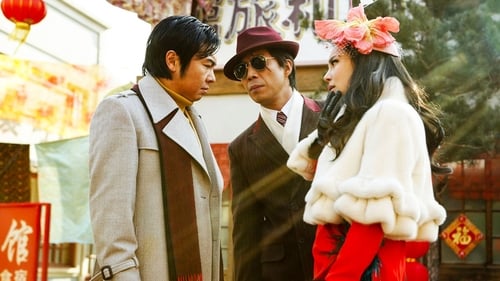
Under Japanese imperialism, Korean national treasure Golden Buddha is stolen. More important to national security, the statue contains vital information concerning Korean freedom fighters and their whereabouts as well as their true identities. The interim Korean government appoints legendary Korean spy Agent Dachimawa Lee to recover the fabled statue and reveal the dark plot behind the theft.

The story is about the Japanese occupation of Korea during World War II. A Korean patriot played by Carter Wong gets into a fight with some Japanese people and is chased into a church. The priest there is captured and tortured. Trying to secure his release, the leader of the resistance, Jhoon Rhee is himself captured and tortured by the Japanese. Carter Wong, Angela Mao and Anne Winton have to now try and rescue him. This leads to an explosive climax with the heroes having to fight the likes of Wong In Sik (Hwang In-Shik), Sammo Hung and Kenji Kazama.
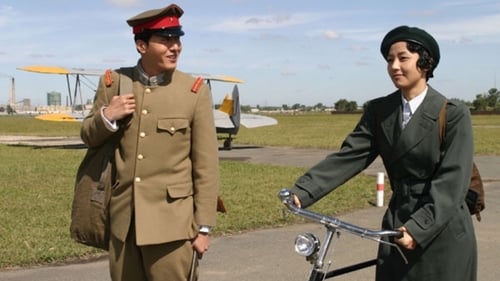
日本統治下の朝鮮に生まれ、数々の苦難を乗り越えて女性初の日本海横断飛行に挑んだパイロット、朴敬元の物語。夕日を浴びながら飛ぶ複葉機の描写が素晴らしく美しい。
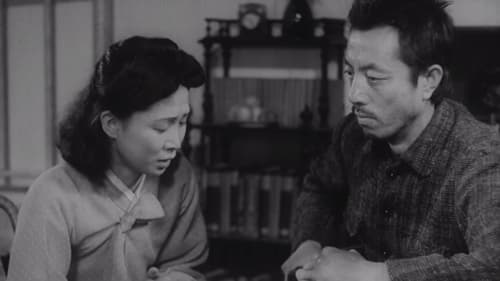
Hurrah! For Freedom (aka Viva Freedom) is a 1946 Korean film directed by Choi In-kyu. It was the first film made in the country after achieving independence from Japan. During the country's occupation Choi was only allowed to make Japan-friendly films, but the plot of Hurrah! For Freedom is distinctly different, telling the story of a Korean resistance fighter in 1945.

This joint Korean-Japanese production follows a Korean woman, Lee Ha-jong, as she searches for her father's remains. He - like tens of thousands of other Koreans - was forced into the Japanese military, and subsequently killed during WW2. She is joined by a Japanese man, seeking reconciliation between his country's military past, and the countries victimized by that history. The filmmakers portray both sides of a still highly emotional debate that centers around the enshrinement of soldiers at the Yasukuni Shrine, and Lee's lawsuit to prevent her father from being enshrined there. As Lee visits Japan and the controversial Yasukuni Shrine, she confronts - and is confronted by a wall of nationalistic pride that might be compared to neo-Nazis defending the righteousness of The Reich. This is contrasted with her meeting and working with Japanese peace activists, who deplore their countries' militaristic past, and seek to heal the wounds with her neighbors.

Openly challenge the powerful that generate poverty, inequality and concentration of wealth has been a constant struggle since 1984, during which the MST (Movement of Landless Rural Works) became one of the most important and recognized social movements in the world. Following the everyday life in camps and settlements in Rio Grande do Sul, marches and confrontations, more contributions from activists and cameramen film clips, the report brings the main issues surrounding the challenge of doing agrarian reform.
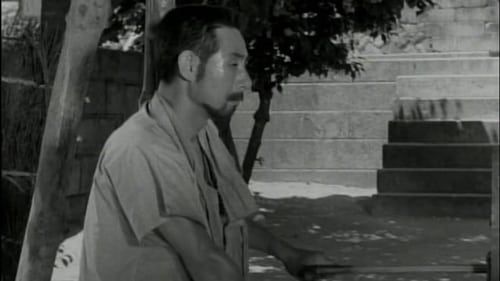
A woman is sold to a forced labor camp as a 'comfort woman' to entertain the guards, a sex slave of the Japanese army. She falls in love with a prisoner there and they make plans to escape.

Festival panafricain d'Alger is a documentary by William Klein of the music and dance festival held 40 years ago in the streets and in venues all across Algiers. Klein follows the preparations, the rehearsals, the concerts… He blends images of interviews made to writers and advocates of the freedom movements with stock images, thus allowing him to touch on such matters as colonialism, neocolonialism, colonial exploitation, the struggles and battles of the revolutionary movements for Independence.

During the era of Japanese occupation, Sol Jin-young, a Korean patriarch refuses to obey the law to change the family's name to a Japanese name. Tani, a member of the Japanese occupation forces, is sent to persuade Sol to comply with the order. Tani is conflicted between his duty, his respect for Korean culture and his attraction to Sol's daughter.

「ビューティー・インサイド」のハン・ヒョジュが主演し、1943年の日本統治下の朝鮮を舞台に、時代に翻弄されながらも歌と愛に生涯をささげた妓生(キーセン)たちの生き様を描いたドラマ。美貌と優れた歌唱力から最高の歌姫と称されるソユルと、心に響く天性の歌声を持つヨニ。幼なじみの親友同士である2人は京城唯一の妓生養成学校の同期からも羨望を受ける存在だった。2人の才能と美貌に一目を置く作曲家のユヌが、ヨニの歌声に魅了されていく現実を前に、歌手になることを夢見るソユルのヨニへの嫉妬心が次第に芽生え、3人の運命が少しずつ狂い始めていく。ハン・ヒョジュがソユル役を演じるほか、作曲家ユヌ役を「応答せよ1994」のユ・ヨンソク、ヨニ役を「ハン・ゴンジュ 17歳の涙」のチョン・ウヒがそれぞれ演じる。
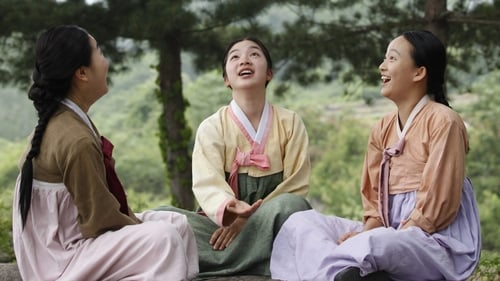
After the Japanese kidnap two Korean teenagers and take them to a comfort station to join other girls who are serving as sex slaves, only one of them survives. Decades later, the elderly woman tries to reunite with her friend's spirit.
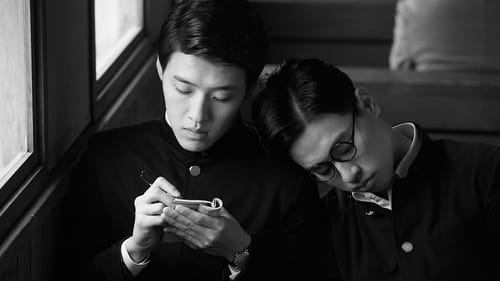
Based on a true story, renowned Korean poet, Yun Dong-ju, is detained and abused by the Japanese for participating in the Korean Independence Movement.
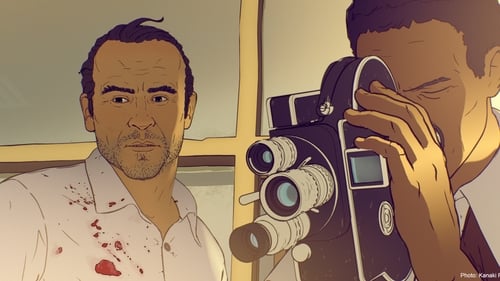
In 1975, Ryszard Kapuściński, a veteran Polish journalist, embarked on a seemingly suicidal road trip into the heart of the Angola's civil war. There, he witnessed once again the dirty reality of war and discovered a sense of helplessness previously unknown to him. Angola changed him forever: it was a reporter who left Poland, but it was a writer who returned…

In 1925 Korea, Japanese rulers demand the last remaining tiger be killed. The tiger easily defeats his pursuers until a legendary hunter takes him on.
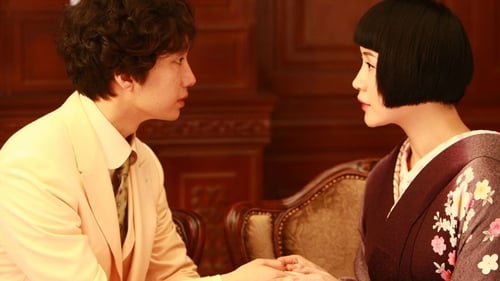
During the Japanese occupation, a Korean modern boy, who wants to fit in with the Japanese, falls in love with a Korean freedom fighter.

Rafael, a Seville citizen who has never left the Spanish region of Andalucia, decides to leave his homeland to follow Amaia, a Basque girl unlike other women he has known.
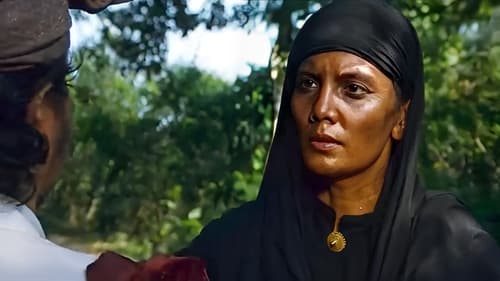
Set in 1896, "Tjoet Nja' Dhien" celebrates one of Indonesia's great heroes who fought for independence from the Dutch. The pious Muslim people of Aceh, a city that had flourished since ancient times as a trade port, enter into a fierce war with the Dutch. Tjoet Nja' Dhien, the widow of a rebel leader operating in Aceh in Sumatra, assumes the leadership when her husband Teuku Uma is killed in an ambush. Dhien's charismatic presence and power of survival motivate the locals to join and later continue their opposition to the Dutch. Despite personal obstacles, she remained in the thick of the struggle for ten years.
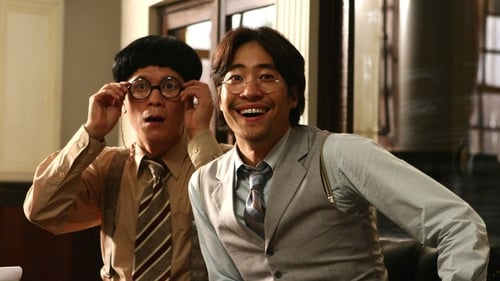
In April 1933, Korea’s Japanese occupiers launched the country’s first radio station, JODK. It broadcasts propaganda so as to better brainwash the Korean people into becoming loyal Japanese citizens. In need of a Korean producer for a radio drama about the greatness of Japan’s Asian Empire, they appoint Lloyd Park, a young man who has only joined the radio station through his father’s connections.
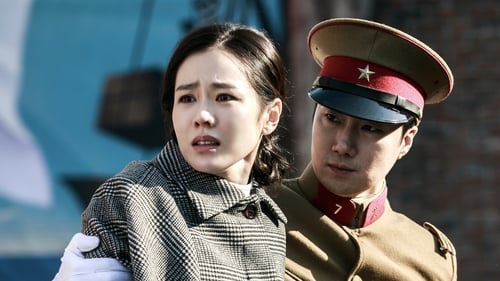
Under the oppressive Japanese colonial rule, Deok-hye, the last Princess of the declining Joseon Dynasty, is forced to move to Japan. She spends her days missing home, while struggling to maintain dignity as a princess. After a series of failed tries, Deok-hye makes her final attempt to return home with help of her childhood sweetheart, Jang-han.






















